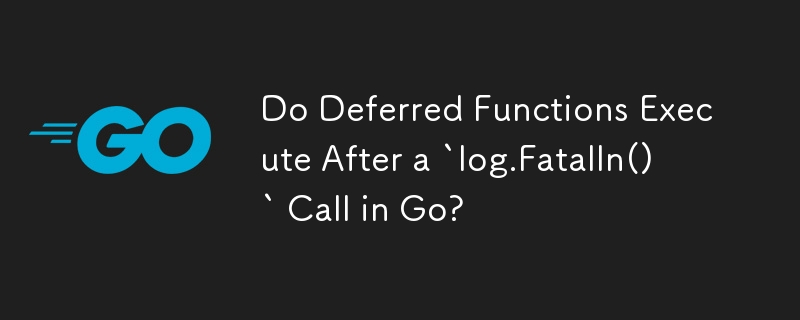

In Go, deferred functions are executed when a function returns, even if the function panics. However, what happens to deferred functions when the program terminates due to a call to log.Fatalln()?
The log.Fatalln() function is used to log an error and then terminate the program. It is equivalent to calling log.Print() diikuti by a call to os.Exit(1).
os.Exit() causes the program to exit immediately. This is important because:
log.Fatal calls os.Exit os.Exit does not run deferred functions
Therefore, any deferred functions that are defined after a call to log.Fatalln() are not called.
Here's an example to demonstrate this behavior:
import (
"log"
"os"
)
func main() {
f, _ := os.Create("foo.txt")
defer f.Close()
log.Fatalln("Error")
}In this example, the program attempts to open and close a file using a deferred function. However, the file is never closed because the program is terminated by the call to log.Fatalln().
If you need to properly close resources or perform cleanup actions before the program exits, avoid using log.Fatalln(). Instead, handle errors gracefully and ensure that deferred functions are executed properly.
The above is the detailed content of Do Deferred Functions Execute After a `log.Fatalln()` Call in Go?. For more information, please follow other related articles on the PHP Chinese website!




